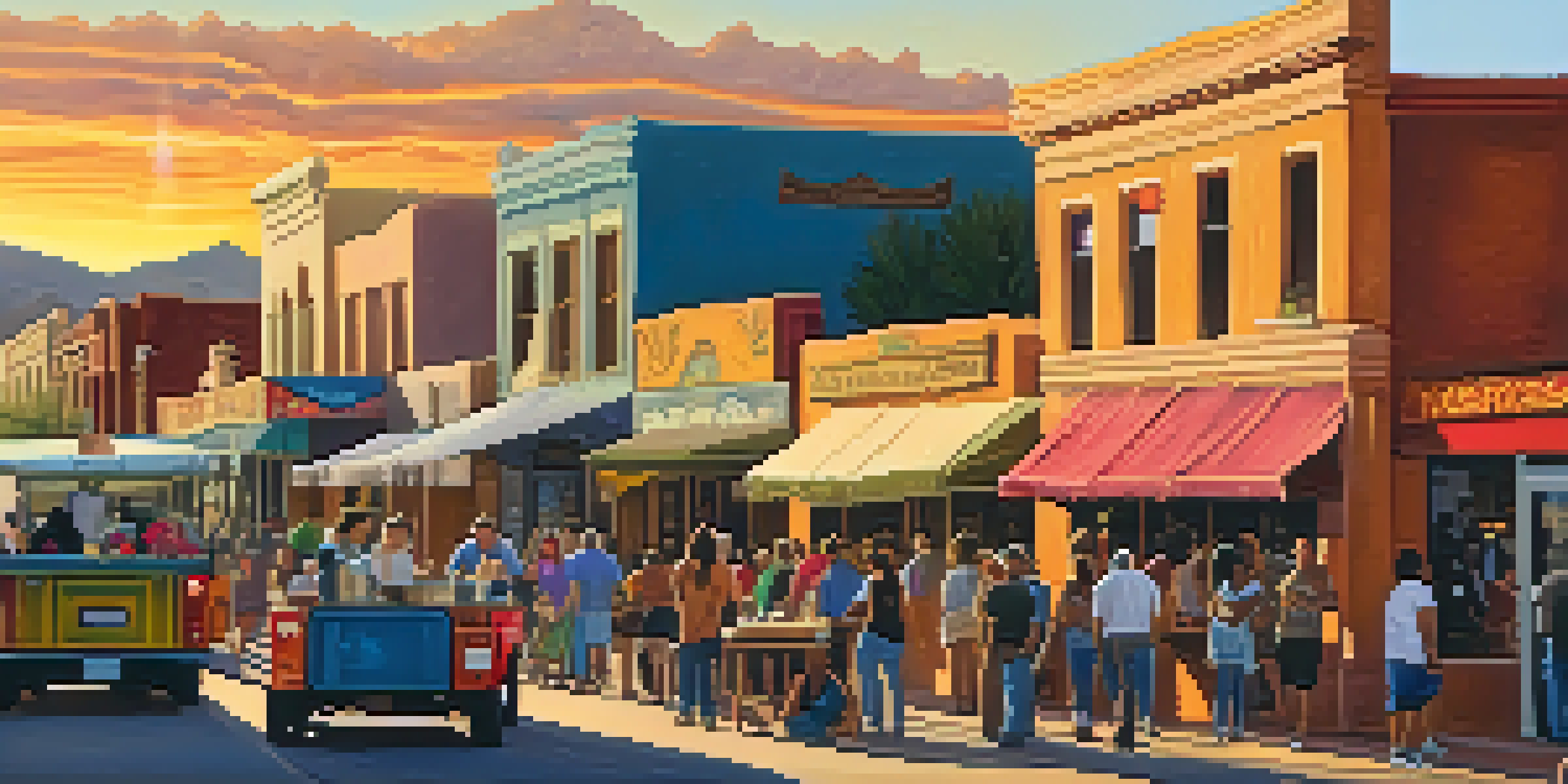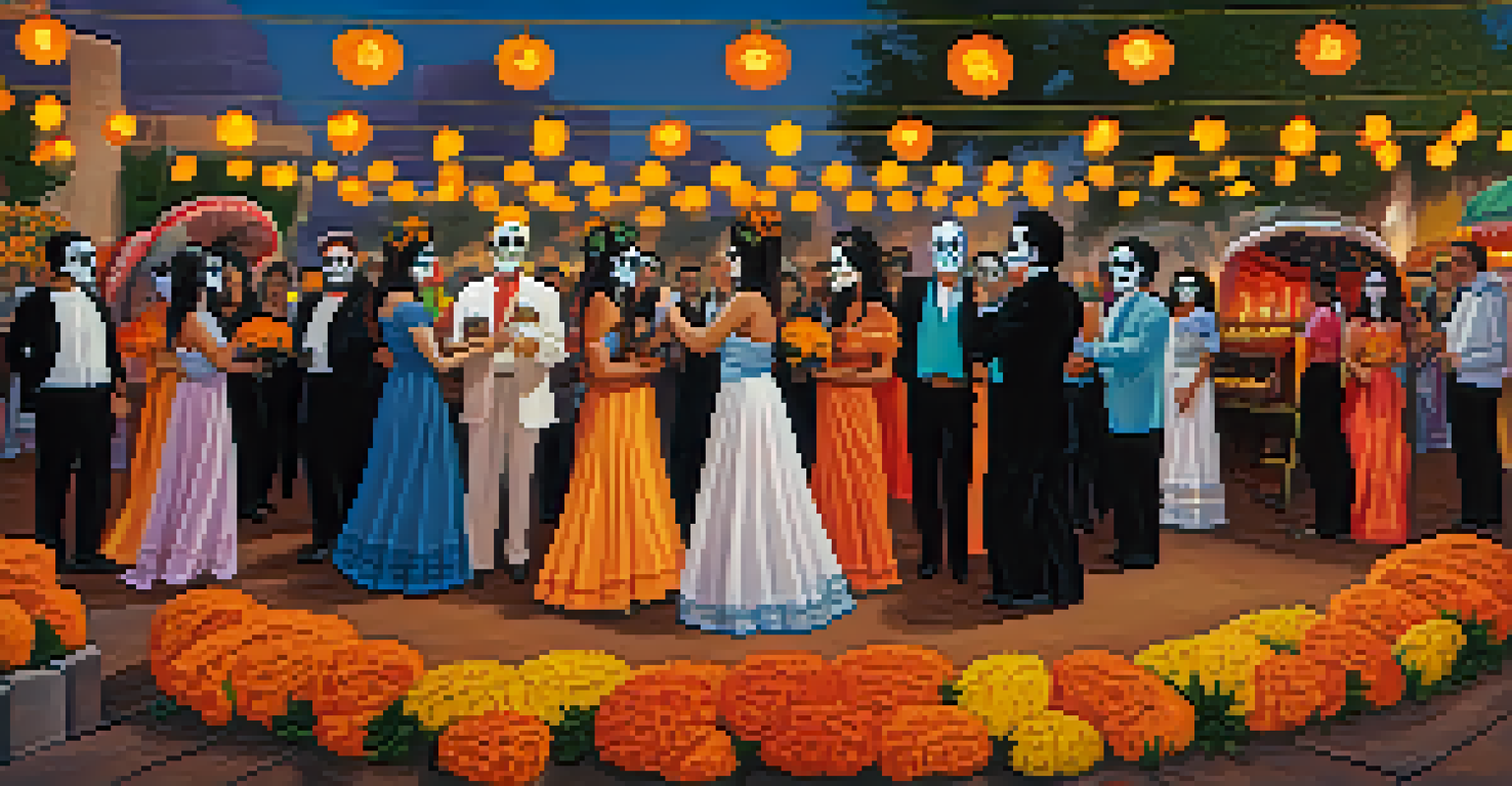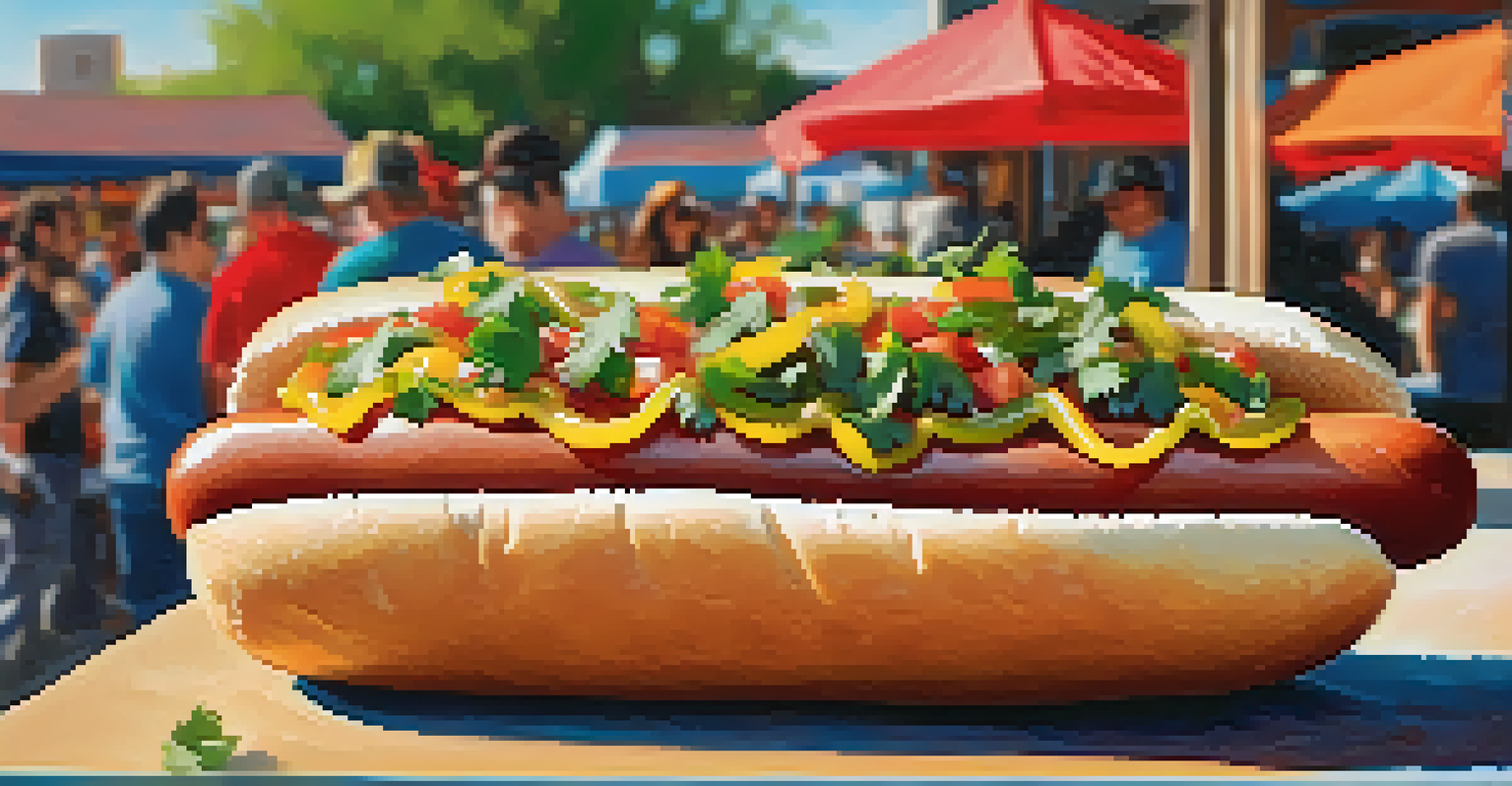Mexican Influence in Tucson: A Fusion of Traditions

A Historical Overview of Tucson's Mexican Heritage
Tucson's roots are deeply intertwined with Mexican culture, dating back to its founding in 1775. This rich history is a tapestry woven from Spanish colonial influences, Indigenous traditions, and the arrival of Mexican settlers. Each wave of migrants brought their customs, languages, and culinary delights, creating a unique blend that defines Tucson today.
Culture is a way of coping with the world by defining it in detail.
The city's historical significance as a trade route between Mexico and the United States also played a crucial role. Tucson became a melting pot where diverse cultures converged, fostering an environment ripe for the exchange of ideas and traditions. This historical backdrop is not just a relic of the past; it continues to shape the community's identity.
As you explore Tucson, you'll find the remnants of its Mexican heritage in architecture, festivals, and everyday life. From the historic Mission San Xavier del Bac to the vibrant murals that adorn buildings, the influence is palpable. These elements are not only historical markers but also living expressions of the city's cultural narrative.
Culinary Delights: A Taste of Mexican Traditions
One of the most delicious aspects of Tucson's Mexican influence is its cuisine. The city is known for its unique take on traditional Mexican dishes, with local ingredients and flavors that give them a distinct flair. For instance, Tucson is famous for its Sonoran-style hot dogs and carne asada, which reflect the culinary traditions of the region.

Food is not just sustenance in Tucson; it's a celebration of culture and community. Local restaurants and food trucks often serve up family recipes passed down through generations, offering a taste of home to residents and visitors alike. Events like the annual Tucson Taco Festival highlight this passion for food, bringing people together to savor the city's culinary offerings.
Tucson's Rich Mexican Heritage
Tucson's identity is deeply rooted in Mexican culture, shaped by historical influences and the blending of traditions.
Moreover, the influence of Mexican cuisine extends beyond just restaurants. Farmers' markets showcase fresh produce and spices that are staples in Mexican cooking, allowing home chefs to recreate traditional dishes. This culinary connection not only nourishes the body but also preserves the cultural legacy of the community.
Festivals and Celebrations: Honoring Mexican Traditions
Tucson's calendar is dotted with vibrant festivals that celebrate its Mexican heritage. Events like La Fiesta de los Vaqueros, which honors the city's cowboy culture, and El Dia de los Muertos, celebrating the Day of the Dead, draw large crowds and highlight the community's rich traditions. These celebrations are not merely events; they are a way for residents to express their identity and pride.
The beauty of the world lies in the diversity of its people.
During these festivals, you can experience traditional music, dance, and art that reflect the city’s cultural landscape. Mariachi bands fill the air with lively tunes, while dancers in colorful costumes perform traditional folklorico dances. These artistic expressions serve as a reminder of the vibrant culture that thrives in Tucson.
Furthermore, these events foster a sense of unity and belonging. They invite people from all backgrounds to come together, share stories, and appreciate the beauty of cultural diversity. In Tucson, each festival is a celebration of life, love, and community, drawing from its rich Mexican roots.
Art and Architecture: A Fusion of Styles
The influence of Mexican culture is vividly illustrated in Tucson's art and architecture. The city boasts stunning examples of adobe buildings, reflecting traditional Mexican construction methods that are both functional and beautiful. These structures not only provide a glimpse into the past but also contribute to the city's unique aesthetic.
Local artists often draw inspiration from their heritage, creating works that celebrate their cultural identity. Murals depicting historical events, religious icons, and everyday life can be found throughout Tucson, adding color and vibrancy to the urban landscape. These artworks serve as a bridge between the past and present, capturing the essence of the community.
Culinary Traditions Thrive
The city's unique cuisine reflects its Mexican heritage, with local dishes and festivals celebrating communal culinary experiences.
Architectural wonders like the Tucson Convention Center and the historic El Presidio district showcase the seamless blend of Mexican and American influences. As you stroll through these areas, you can't help but appreciate the rich narrative each building tells, making Tucson a living museum of cultural fusion.
Language and Communication: The Bilingual Community
Language is a powerful reflection of culture, and in Tucson, Spanish and English coexist in harmony. Many residents are bilingual, a testament to the city's Mexican heritage and its close ties to the Latino community. This linguistic diversity enriches communication and fosters understanding among different cultural groups.
Spanish is often heard in everyday conversations, local businesses, and community events. It’s not uncommon to see bilingual signs, menus, and advertisements, showcasing the importance of both languages. This blend creates an inclusive atmosphere where everyone feels welcomed and valued.
Moreover, the use of language extends beyond mere communication; it’s a way to connect with one’s roots. Many families prioritize teaching their children Spanish, ensuring that the language and its cultural significance are passed down through generations. This commitment to preserving language is vital for maintaining Tucson's vibrant cultural identity.
Education and Community Engagement: A Focus on Culture
Tucson's educational institutions play a crucial role in promoting and preserving Mexican culture. Schools often incorporate cultural studies into their curricula, teaching students about the rich history and traditions of their community. This educational focus not only fosters awareness but also instills pride in cultural heritage.
Community organizations frequently host workshops, classes, and events aimed at celebrating Mexican traditions. From cooking classes that teach traditional recipes to art workshops that explore cultural themes, these initiatives help bring the community together. They offer opportunities for individuals to learn about their heritage while engaging with others.
Vibrant Festivals Unite Community
Tucson hosts lively festivals that honor Mexican traditions, fostering a sense of unity and cultural pride among residents.
By prioritizing cultural education, Tucson ensures that future generations understand and appreciate the significance of their roots. This commitment to community involvement strengthens connections among residents and fosters a shared sense of identity, paving the way for a more inclusive future.
The Future of Mexican Influence in Tucson
As Tucson continues to grow and evolve, the influence of Mexican culture remains a cornerstone of its identity. New generations are embracing their heritage while also blending it with contemporary influences, creating a dynamic cultural landscape. This fusion fosters creativity and innovation, ensuring that Tucson's cultural narrative remains vibrant and relevant.
The influx of new residents brings diverse perspectives that enrich the community. As different cultures intersect, Tucson becomes a hub of creativity, where art, music, and cuisine evolve while maintaining a strong connection to their roots. This ongoing cultural exchange is a testament to the city's resilience and adaptability.

Looking ahead, Tucson's Mexican influence will likely continue to shape its identity, fostering a sense of pride and belonging among residents. As the community celebrates its heritage while embracing the future, the blend of traditions will keep Tucson an exciting and welcoming place for everyone.